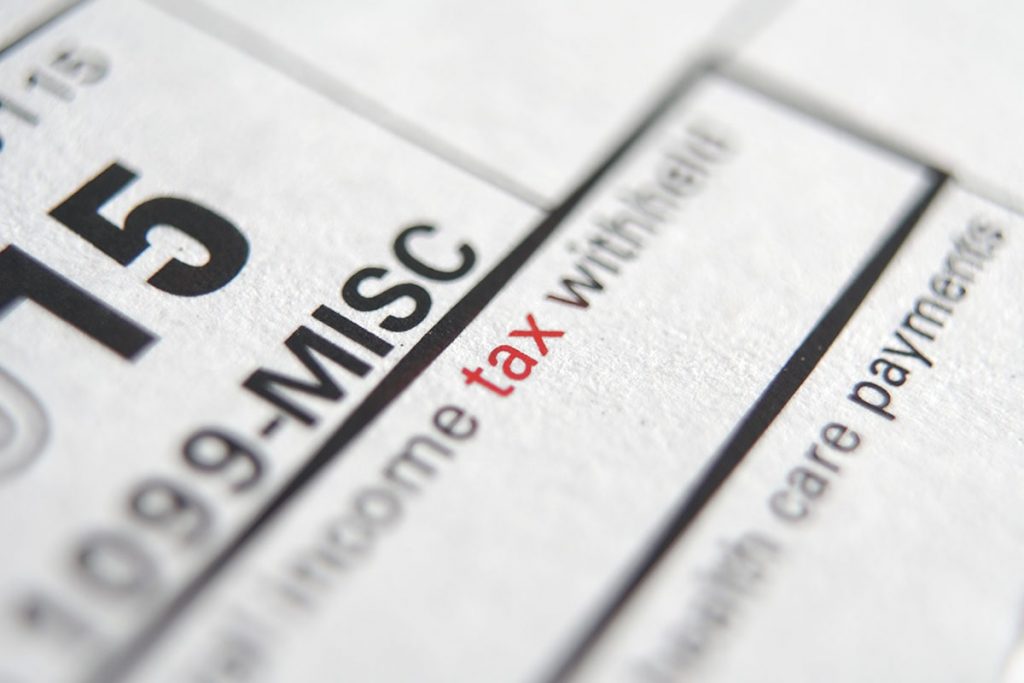Filing Taxes? Don’t Let These Common Myths Trip You Up

Filing your personal taxes can feel like navigating a maze. Conflicting advice, half-truths, and outdated information flood in from every direction. Whether a friend shares it or you spot it in a viral post, tax myths are everywhere. Believing them could cost you money—or even get you in trouble with the IRS.
Every year, countless taxpayers make filing mistakes because of common myths. Some think they don’t need to file at all. Others assume certain income doesn’t “count.” The truth is, tax laws change, personal circumstances vary, and what worked last year might not apply this time around.
In this post, we’ll break down some of the most widespread misconceptions about filing personal taxes. We’ll also point out key documents like Form W-2, Form 1099-NEC, and paystubs. These play an important role in making sure your tax return is complete and accurate.
Let’s bust some myths and set the record straight.
Myth #1: “I Don’t Need to File if I Made Less Than $12,000”
This is one of the most common misconceptions around tax time—and while it holds some truth in specific situations, it’s not a one-size-fits-all rule.
The idea behind this myth usually stems from the standard deduction. For example, in recent tax years, if you’re a single filer under the age of 65 and made less than the standard deduction amount (which hovers around $12,000 to $14,000 depending on the year), you might not be legally required to file a return.
But here’s the catch: just because you aren’t required to file doesn’t mean you shouldn’t. In many cases, filing can actually benefit you—especially if you had federal income tax withheld from your paychecks. If you worked for an employer, chances are you received a Form W-2 at the end of the year. That W-2 shows how much was withheld from your earnings, and you may be eligible for a refund if you overpaid.
Even if you earned only a few thousand dollars, filing your taxes could also make you eligible for valuable credits like the Earned Income Tax Credit (EITC), which could result in a significant refund.
Bottom line:
If you earned any income, especially from an employer who issued a W-2, it’s worth checking whether you’re due a refund or qualify for credits. The IRS doesn’t automatically send you that money—you have to file to claim it.
Myth #2: “Independent Contractors Don’t Need to File Taxes”

This one is dangerously misleading. Whether you’re freelancing on the side, delivering food, doing consulting work, or running your own small business, you absolutely need to report your income and file a tax return.
Unlike traditional employees who receive a Form W-2 and have taxes automatically withheld from their paychecks, independent contractors and freelancers typically receive a Form 1099-NEC from each client who paid them $600 or more during the year. But here’s where it gets tricky: even if you didn’t receive a 1099, you’re still required to report the income.
What many people don’t realize is that the IRS expects you to file a return and pay self-employment tax—which covers Social Security and Medicare—on top of any income tax owed. The filing threshold for self-employed individuals is much lower than people think: if you earned $400 or more in net self-employment income, you’re required to file.
Pro tip:
Even if you’re earning part-time gig income or doing weekend side work, it’s smart to keep detailed records and anticipate your tax responsibility. Filing can also unlock deductions related to your self-employed work, potentially lowering your tax bill.
Myth #3: “If I Didn’t Get a Tax Form, I Don’t Need to Report the Income”
This myth can land people in serious trouble. The IRS requires you to report all taxable income, regardless of whether you received a tax form like a W-2 or 1099. In other words, just because no official paperwork showed up in your mailbox doesn’t mean the income doesn’t count.
This scenario is especially common with:
- Side gigs or cash-based jobs
- Tips from service work
- Rental income
- Small projects from friends or family
- Freelance work under $600 (when no 1099-NEC is issued)
Even though clients or employers may not have sent you a tax document, you’re still legally responsible for reporting that income. The IRS can and does use other methods—like matching bank deposits or reviewing audits—to detect unreported earnings.
So how do you track that income?
If you didn’t receive a formal tax form, you can still reference paystubs, personal invoices, or bank records to accurately calculate what you earned. Many platforms and employers offer downloadable pay history, even if they don’t issue a W-2 or 1099.
Key takeaway:
If money changed hands, there’s a good chance the IRS wants to know about it. Don’t let the absence of paperwork give you a false sense of security.
Myth #4: “Filing Taxes Is the Same Every Year”

It’s easy to assume that once you’ve filed your taxes once, you’ve got it all figured out—but in reality, tax filing can change dramatically from one year to the next, depending on both your personal situation and changes in tax law.
Here are a few examples of what might trigger differences in how you file:
- You changed jobs (which means a new Form W-2 or even a 1099-NEC if you freelanced).
- You got married or divorced, affecting your filing status.
- You had a child, which could qualify you for new credits.
- You moved to a different state, which might require a second state return.
- You started a side hustle, which brings self-employment taxes into the picture.
- The IRS changed deduction limits or credit eligibility, which happens more often than people think.
Even subtle changes—like earning a few dollars more or less—can affect which tax bracket you’re in or what credits you’re eligible to claim.
Why this myth sticks:
Filing software and auto-filled forms make things feel automatic, but they can create a false sense of consistency. It’s still your responsibility to verify your details each year and stay up to date.
Stay proactive:
The best way to keep your filing accurate is to review your forms carefully every year, even if you’re using the same tax preparer or software. If your situation changes, so do your filing obligations—and failing to account for that could mean missing out on refunds or overpaying.
Myth #5: “I Can Claim Anyone as a Dependent”
It might seem harmless to claim someone on your tax return if you help support them, but the IRS has strict rules about who qualifies as a dependent—and getting it wrong can result in penalties, rejected returns, or even audits.
Many people mistakenly think they can claim:
- A roommate they helped with rent
- An adult child who lives at home but files their own taxes
- A significant other they support financially
In reality, the IRS only allows you to claim someone as a dependent if they meet specific criteria, which fall into two main categories:
- Qualifying child – Must meet rules related to age, relationship, residence, and financial support.
- Qualifying relative – Must not earn more than a set amount of gross income annually (unless disabled), must receive over half their support from you, and can’t be claimed by someone else.
What happens if you get it wrong?
Claiming an ineligible dependent can delay your refund, trigger IRS scrutiny, and may require you to amend your return. It can also affect other tax breaks like the Child Tax Credit or Head of Household status.
Pro tip:
When in doubt, use the IRS’s interactive tool to determine dependent eligibility—or consult a tax professional before you file.
Busting Tax Myths Can Save You Time, Money, and Stress

Tax season is stressful enough without second-guessing what’s true and what’s just hearsay. As we’ve seen, myths about income thresholds, independent contractor rules, missing forms, and dependents can lead to missed refunds—or worse, IRS trouble.
If you’re looking for a simpler way to get your documents in order before filing, FormPros offers easy-to-use tools to generate accurate paystubs, 1099s, W-2s, and more—perfect for both employees and self-employed individuals. Don’t leave your refund on the table because of bad advice. Start with the facts and the right forms.
FormPros Has You Covered
Simplify your paperwork with FormPros! From creating paystubs, W-2s, and 1099-NEC forms to generating LLC Operating Agreements and even voided checks, our easy-to-use platform has you covered. Save time, reduce errors, and handle your business documents with confidence. Start now and see how FormPros makes professional form generation fast, affordable, and hassle-free!